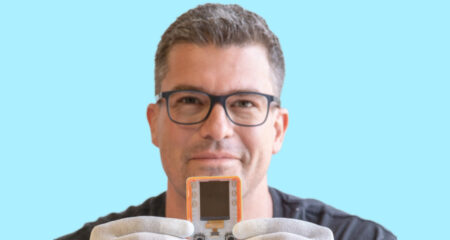 Bitcoin blockchain’s reputation as a network that mainly supports digital gold may be changing as efforts gain traction to add new features via a software upgrade to its code.
Bitcoin blockchain’s reputation as a network that mainly supports digital gold may be changing as efforts gain traction to add new features via a software upgrade to its code.
The front-runner in the upgrade debate is a program called OP_CAT — a small software tweak that would add about 10 lines to the code that enables linking of two elements together, so-called concatenation. If adopted it would open the door to a host of enhancements for bitcoin users from better coin custody to decentralised finance apps of the type that are already common on rival blockchains such as Ethereum and Solana.
“You could actually do smart contracts very similar to what you’d see on other chains,” Udi Wertheimer, chief executive officer of OP_CAT supporter Taproot Wizards, said in an interview. “Bitcoin could be a lot more than it is,” he adds. “It’s time to talk about an actual technical upgrade.”
Implementing OP_CAT, however, means upgrading the bitcoin network and that’s a big deal, requiring the community and core developers to sign on to the revamp. While rivals like Ethereum complete dramatic upgrades at least once a year, the network for the world’s largest cryptocurrency hasn’t added new functionality since 2021.
In fact, it’s been left unchanged on purpose, as the fewer the changes, the more likely it is to remain stable and secure, the logic goes. Some believe OP_CAT could be the first step toward challenging that notion, and heavyweights in the crypto space are starting to sign onto the idea.
Introduced in October by Ethan Heilman and Armin Sabouri, the OP_CAT feature recently launched on bitcoin’s test network called Signet and was assigned a BIP-420 number, indicating it’s under serious consideration for an upgrade. A slew of well-known people in crypto including Solana Labs co-founder Anatoly Yakovenko have added “BIP-420” to their names on social media site X, formerly known as Twitter. Taproot Wizards in February launched Quantum Cats Ordinals collection, promoting OP_CAT. In April, it published a white paper, outlining a framework for building apps using OP_CAT.
On every chain
“If this innovation gets pushed through, it opens up the potential for every use case on every chain to come back to bitcoin,” Henry Elder, a principal at UTXO Management, which is an investor in Taproot Wizards, said in an interview.
For example, OP_CAT could enable so-called non-equivocation contracts — bitcoin contracts that penalise someone for trying to spend the same coin twice. Or, if a person’s wallet gets hacked, the owner may have some time to reverse the hacked transactions.
“It’s a good idea because bitcoin custody benefits from some extra programmability,” said Adam Back, CEO of Blockstream, focused on bitcoin technology. “And extra programmability enables more layer-2 capabilities.”
Read: The next bitcoin halving is here
Those capabilities, for example, create better bridges with second-tier blockchains, making it more secure and easier to do transactions.
For Heilman who introduced OP_CAT, the features may help bitcoin users keep their digital gold more secure, building so-called vaults for better storage. “Securing ‘digital gold’ is a difficult task for custodians, having OP_CAT provides more powerful tools,” he said in an e-mail. “This is especially important for bitcoiners doing self-custody.”
 Also being considered is an OP_CAT alternative, known as OP_CTV — a more extensive update that accomplishes a similar feat. Proposed by Jeremy Rubin, a bitcoin core developer and CEO of bitcoin researcher Judica, it would let a user automatically send one bitcoin to an address each month; but if the user’s address is hacked, all bitcoins could be sent to cold storage, for example. The feature would also let people create options over derivatives, he said.
Also being considered is an OP_CAT alternative, known as OP_CTV — a more extensive update that accomplishes a similar feat. Proposed by Jeremy Rubin, a bitcoin core developer and CEO of bitcoin researcher Judica, it would let a user automatically send one bitcoin to an address each month; but if the user’s address is hacked, all bitcoins could be sent to cold storage, for example. The feature would also let people create options over derivatives, he said.
“I don’t care what technology primitive bitcoin gets under the hood,” Rubin said. “If we got OP_CAT, that will be fantastic. If we get OP_CTV, that will be fantastic.”
Just when and if an upgrade will be implemented is still up in the air, especially with die-hard bitcoin maxis, which include MicroStrategy’s Michael Saylor — believing it’s the best cryptocurrency around just as it is.
Jeff Garzik, a former bitcoin core developer, said he’s pessimistic that bitcoin will receive even small upgrades such as OP_CAT. “At a high level, this is why some describe bitcoin as ossified: strong and secure yet rarely changed or upgraded,” said Garzik, who co-founded crypto infrastructure and apps company Bloq.
Heilman behind the OP_CAT upgrade concedes there’s no clear timeline. “It could be that we get community consensus in the next four months or maybe it takes years.” — (c) 2024 Bloomberg LP




